#this is really disappointing
Text
Miku EXPO 2024<<<<<<<<
Wth.....
#I talk#No like seriously#Instead of using those amazing holograms like in Japan#Instead of actually doing a proper job to make a concert AMAZING AND MESMERIZING#They used LED screen#Not to mention smallest like wth#Everything just looked really lazy and cheap as hell#This is really disappointing#Fans from NA deserved better#hatsune miku#Miku#Vocaloid#vocaloid miku#miku expo
10 notes
·
View notes
Text
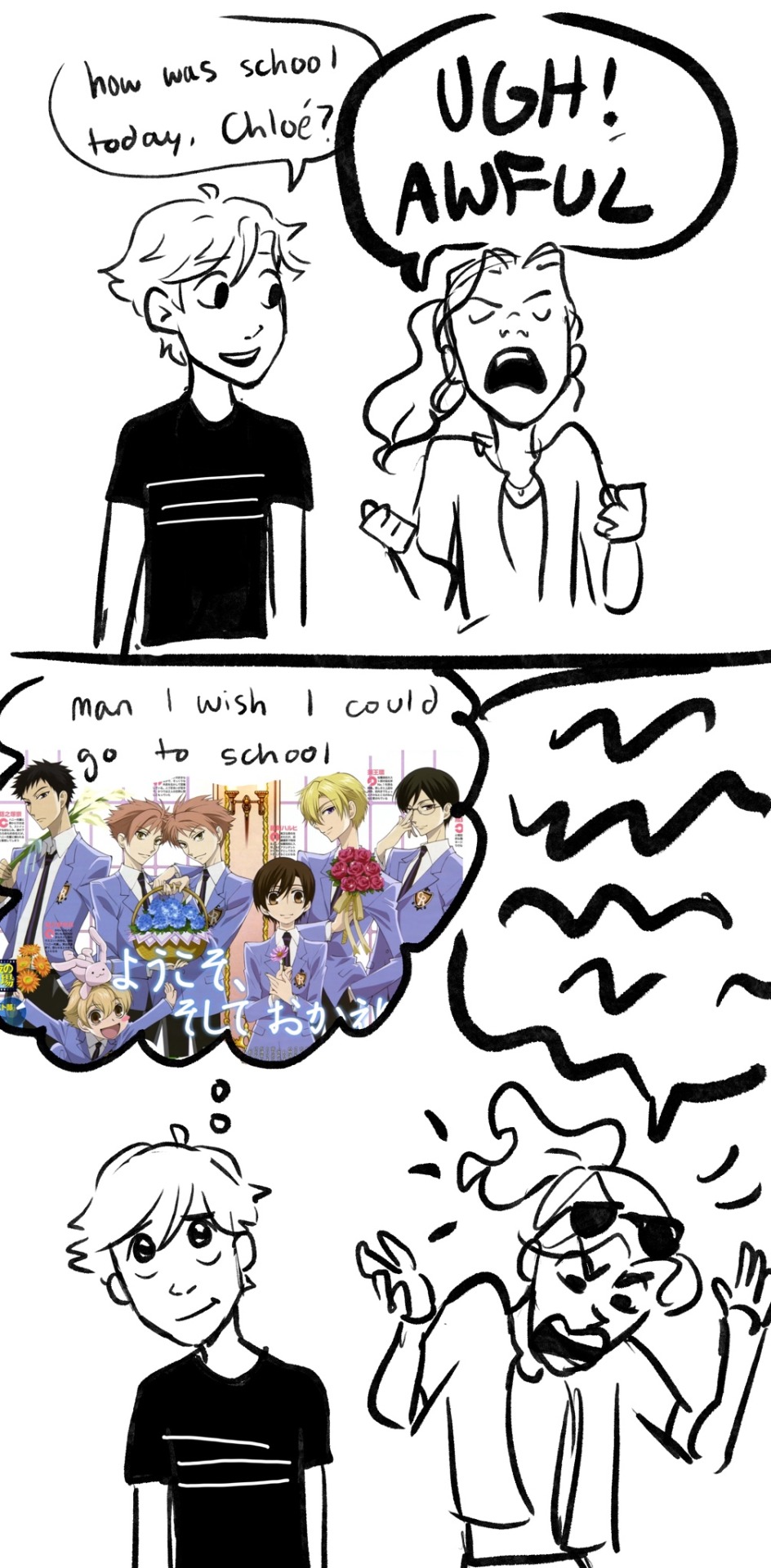
last one i promise(<—lie)
#let’s as a society think more about why adrien wanted to go to school#and what. perhaps. he thought school was#i think the way chloe describes it she really is just a beautiful rich girl with too much time on her hands#and no one at school is treating her accordingly.#abby got so mad at me today because she thinks it’s too cringe that i keep taking about adrien liking ohshc#which is like. how are you gonna know me my whole life and then be disappointed when i’m cringe.#i’ve never hidden who i am. it’s cringe all the way down#anyway#ml#my art#miraculous ladybug#adrien agreste#chloe bourgeois#ohshc#wait i am gonna tag this thirteen actually. just go with me#thirteen
9K notes
·
View notes
Text
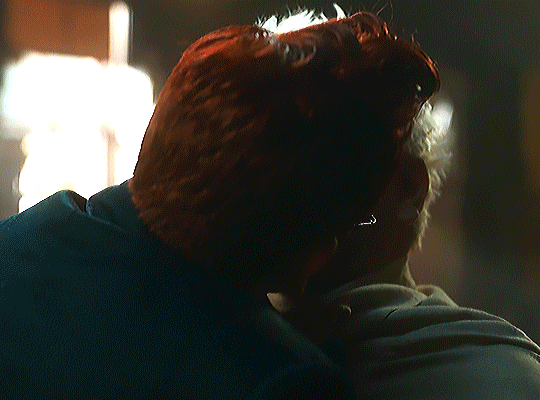
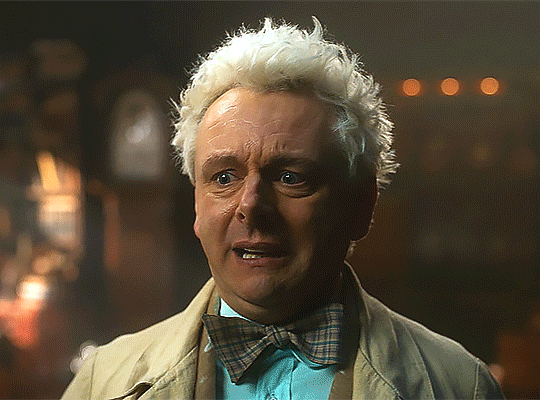
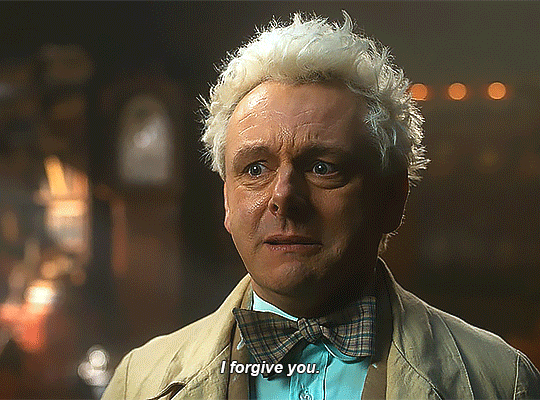
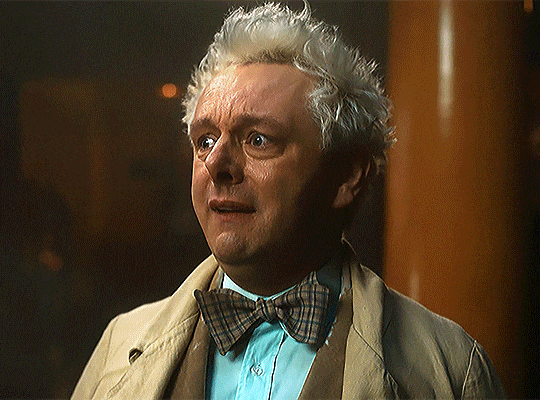
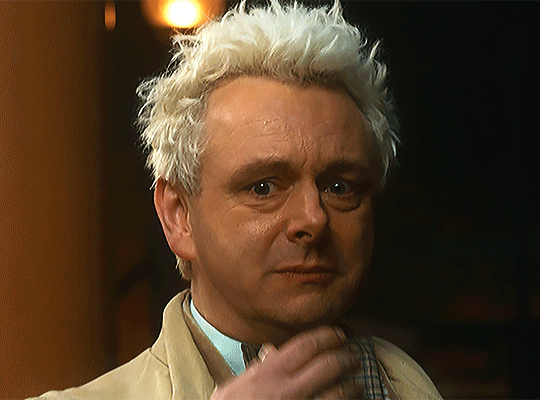

"I'm very good at forgiveness. It's one of my favorite things."
#michael sheen had absolutely NO RIGHT to go that hard#and break me like this#it's all the emotions aziraphale goes through#like he's not even done processing the kiss#it's the anger and the love and the confusion and the disappointment and the heartbreak#and also the guilt at the end#and him covering it all up#i'm really really never going to recover from this#good omens#good omens 2#good omens spoilers#good omens 2 spoilers#goodomensedit#my edits#ineffable husbands
9K notes
·
View notes
Text

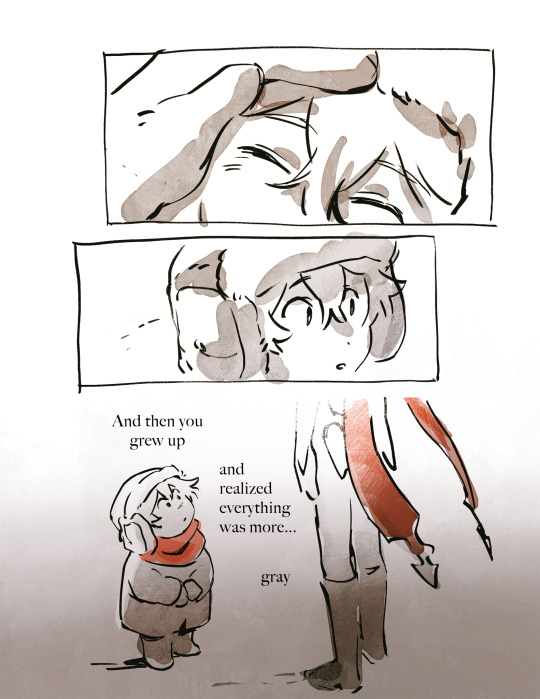


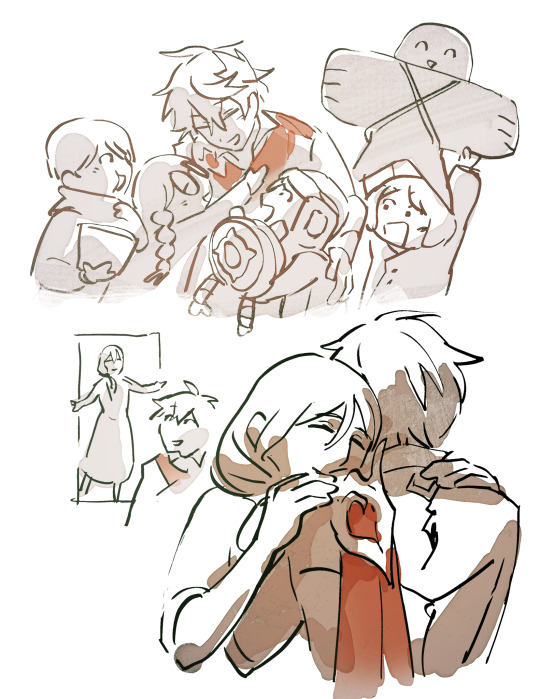
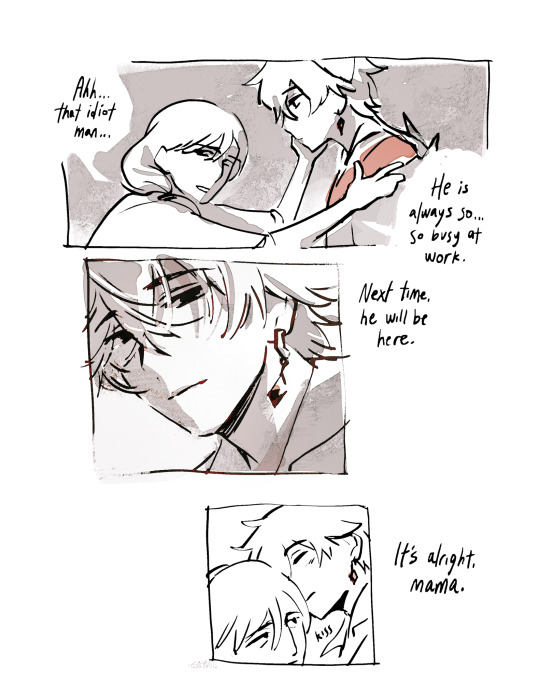
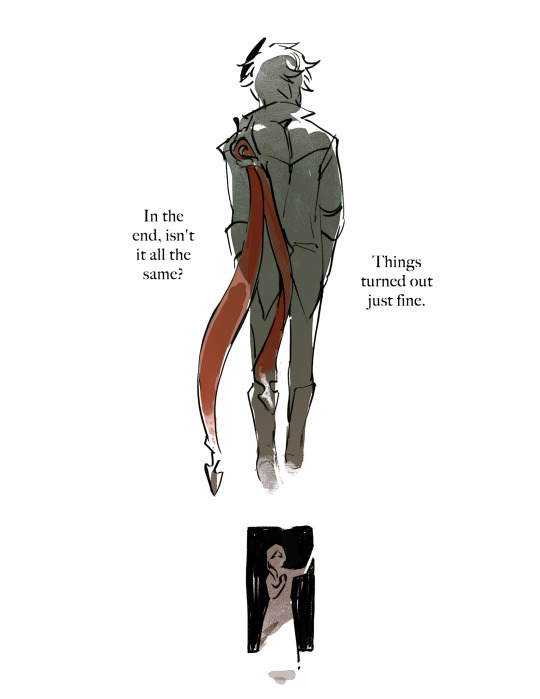
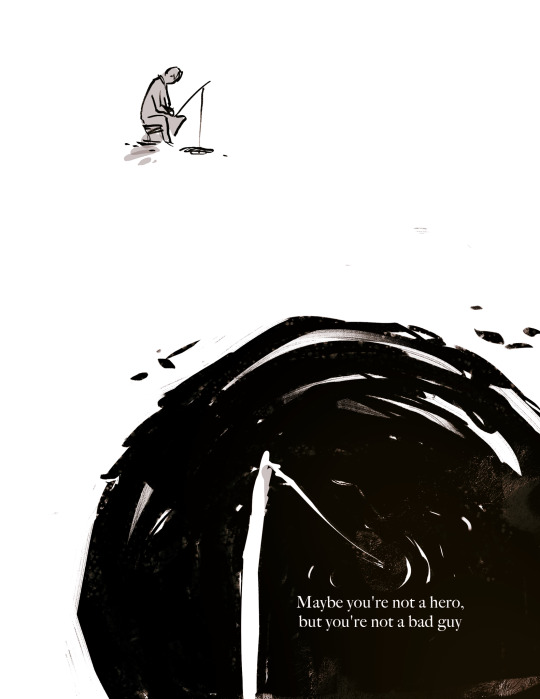
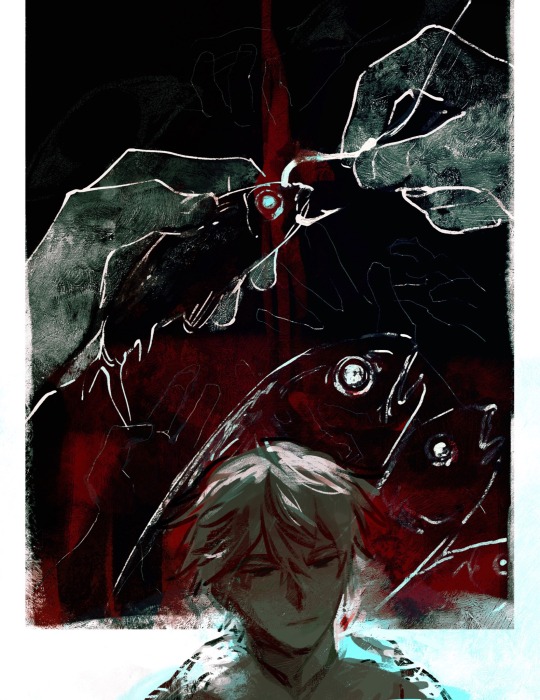

one who had dreams of being a hero
This comic is based on Story 3, which speaks of his hobby of ice fishing originating from the days he'd go out with his father on the ice, 'accompanied by his father's unending tales of adventure,' and dream of being the protagonist.
Nowadays, he keeps up the hobby, though only as a method of training... and it seems he fishes alone.
I thought a lot about fairytales and stories told to children -- how they are used to impart lessons and shape a child's growing sense of morality.
I think these stories were Childe's father telling him what kind of man he hoped his son would become.
In Story 5, 'his father had no choice but to hand his beloved son over for conscription into the Fatui' in an attempt to discipline his temper, but was disappointed when Childe continued ascending the ranks, further and further from the gentle boy he was..
His father named him after the hero Ajax. Is he still disappointed in the path Childe has taken? Does he still see his son in the man he sees before him? Does Childe feel in himself the chasm between who he dreamed of becoming and who he is now?
It's interesting, that fairytales should often have a very strict good/evil morality. Childe professes he has no use for such things, and will gladly become a mindless weapon so long as he can continue honing himself for battle. And yet, has he truly given up on being human?
For a Harbinger, Childe is oddly principled, preferring straightforward battles without deceit. He retains a sort of moral code, reluctant to involve those who are defenseless in his plans.
And of course, he deeply cherishes his family. What sort of weapon has a family? Why does he cling so desperately to this identity as a defender of childhood dreams, of being his sister Tonia's knight?
Perhaps his own dream of being a hero died long ago, but a part of him still recognizes the tragedy of it and maybe... in some way, is still trying.
This is somewhat of a companion piece to my Scara comic "one who has given up on being saved". Childe, unable to live up to his childhood ideals of heroism, and Scara, whose pleas for help went unanswered.
A failed hero, and someone who never had one.
ARGHH yknow it drives me nuts. I haven't known peace since I started thinking about it.
#VERY LONG POST sorry i'm really normal about them. please enjoy my essay#childe#genshin impact#genshin impact fanart#childe fanart#teucer#fatui harbingers#my art#my comics#happy birthday childe.. sorry my present is a comic about what a disappointment you are to your father..
5K notes
·
View notes
Text
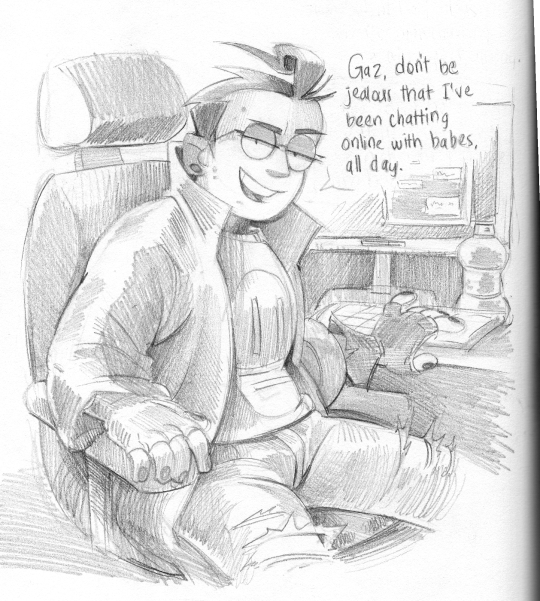
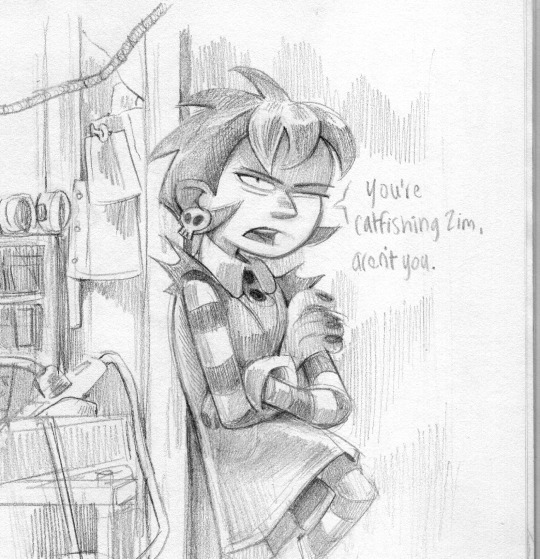
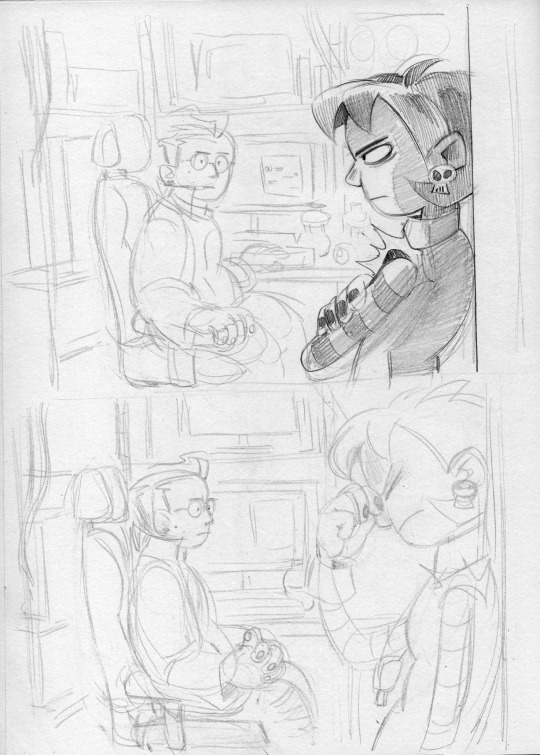
She got em 😔
This is very old. But life has been repeatedly kicking me while I'm down, and I want to share something because sharing these stupid drawings and seeing how people react brings me some joy :')
I'll admit I did plan on finishing this at some point, but it's gotten too old to the point where... it's just too old. I don't want to touch it.
Also YES dib is catfishing zim 1000000000000%
#I scanned more old zadr stuff tonight but it's too late to edit it all#so hopefully I'll share that tomorrow#zadr#invader zim#invader zim fanart#iz fanart#dib membrane#zim#gaz membrane#she is so disappointed in him but she puts up with him anyway#dib looks really bad in the first one#that's part of what I wanted to change when I finished this#but I like I said#its too old
1K notes
·
View notes
Text
so hellena taylor almost definitely misrepresented her situation with platinum and this has definitely harmed discussions on wage pay for voice actors. this is honestly a really heavy blow but this does not change the fact that voice actors are still being mistreated in the industry: Mob Psycho 100s english voice for Mob isn't going to be returning because Crunchyroll refused to sit down with Union representatives , and the voice actor for Breath of the Wild's Revali said he made more from voicing a character in an indie game than his roles in Breath of the Wild. I encourage you all to read into the way voice actors are treated and to not let this incident paint over this industry wide problem.
#thought bubbles#bayonetta#really is so upsetting#but i dont know...#i dont know im just disappointed
20K notes
·
View notes
Text
on a real note that bit near the end of the video was genuinely haunting. hearing somerton talk about how gay writers are erased from history was one thing (with all the irony being that he stepped on the backs of numerous underpaid, underprivileged and uncredited queer writers to build his youtube channel) but when h revealed it wasn't even somerton's quote in the first place? the worst, most crushing sort of irony. how do you lament about the erasure of gay people and gay writers in history... whilst erasing a gay writer and taking his words as your own?
#it's genuinely unconscionable and its given me a lot to think about#i found somerton through his video essay on killing stalking#one of my favourite psychological horrors#i was overjoyed to find someone who seemed to recognise it for the dark character study of trauma and abuse that it was#and not a love story#now all i want to do is go back to that video and search up the phrases in google#to see who really wrote those words and phrases that got to me so deeply#fuck man . what a disappointment#james somerton#hbomberguy#veetxt
3K notes
·
View notes
Note
OMG SCOOPED MICHAEL AHHHHH I LOVE HIM SM IM SO HAPPY YOUR FINALLY DRAWING THE LIL GUY
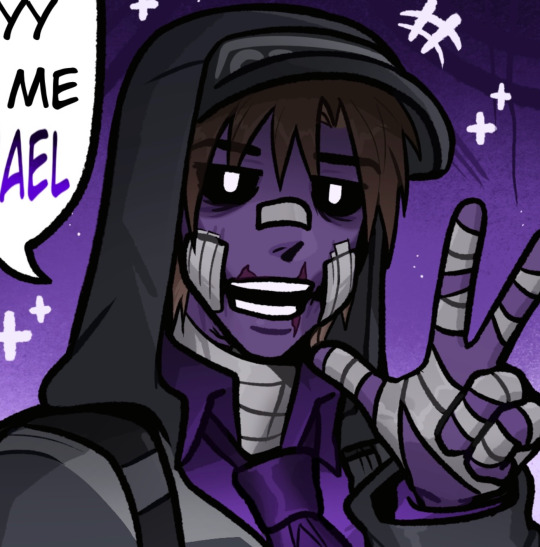
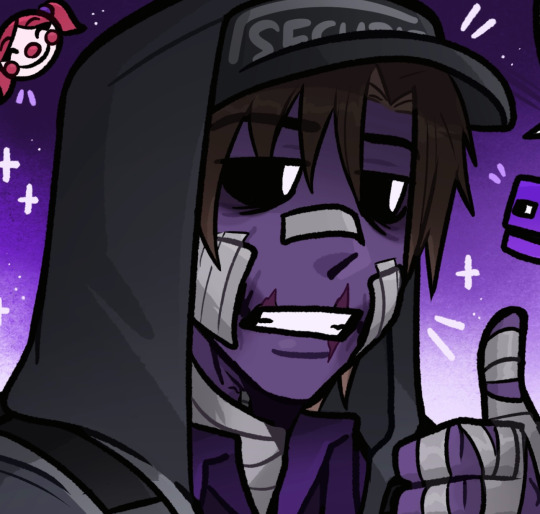
THE GUY EVER is finally here!!
#ask reply#literally I’m so happy y’all loved his design#I really didn’t want to disappoint but the reaction/feedback has been great#I’m gonna have sooo much fun drawing him#there’s too many ideas to do but I’ll try and do em all 💜
2K notes
·
View notes
Text
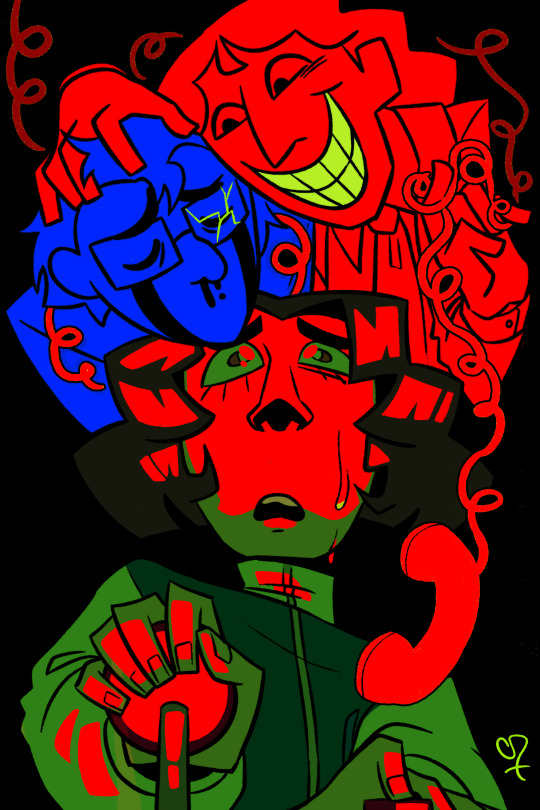
redraw of this post from bunnyfarm's release
kofi|instagram
#my last piece kinda disappointed me just bc i feel like i can do better#idk i think my style is taking a turn and im not sure how to work w it yet. i like messy art that looks kind of childish?-#-if that makes sense#but that kind of clashes w my way of drawing and i also have like no energy or creativity left bc of school </3 so its hard to draw#at least stuff that i really like that are like fully rendered and not just doodles or character standing w white background lol#so i took inspo from an old piece of mine to make this and sort of update it and i really like it!! i think my colours are way better#in the original they were kinda washed out i think and this is a lot more striking#me when primary colours#my art#digital art#artists on tumblr#the walten files#twf#bunnyfarm#sophie walten#jack walten#felix kranken#twf spoilers#tw eyestrain
1K notes
·
View notes
Text
Now that I've heard the news about Phantom closing, all i can think about is WHAT ABOUT THE ORCHESTRA?! What about their stable 30 year jobs filled with resentment?! Are they happy? How many of the originals are out of jobs for the first time in decades? I'll be honest that I haven't checked in on the state of the orchestra since seeing the one post on them but I need to know how they're feeling about this
#phantom of the opera#why is it closing it literally feels like the broadway world is going to be off kilter without it#also disappointing that I'll never get to see it on Broadway since I dont really get traveling freedom for at least 4 years
15K notes
·
View notes
Text
KOSA Got Passed In Florida And Will Take Effect in January 2025
"The Florida governor, Ron DeSantis, has signed a law that has given his state one of the US’s most restrictive social media bans for minors, though it must still withstand expected legal challenges.
Once it takes effect, the bill signed on Monday bans social media accounts for children under 14 and require parental permission for 14- and 15-year-olds." - The Guardian
948 notes
·
View notes
Photo
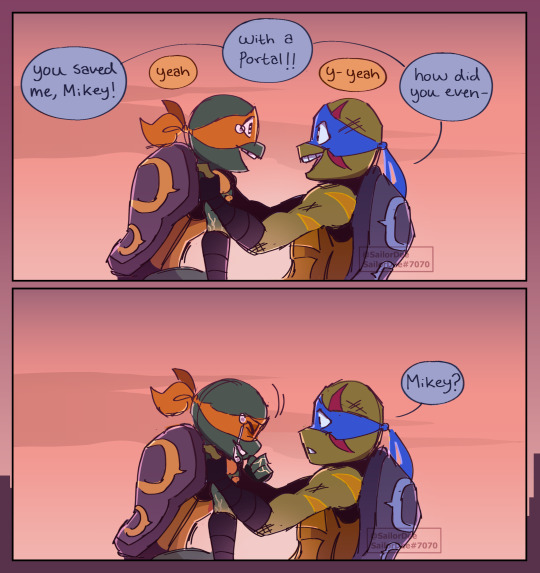
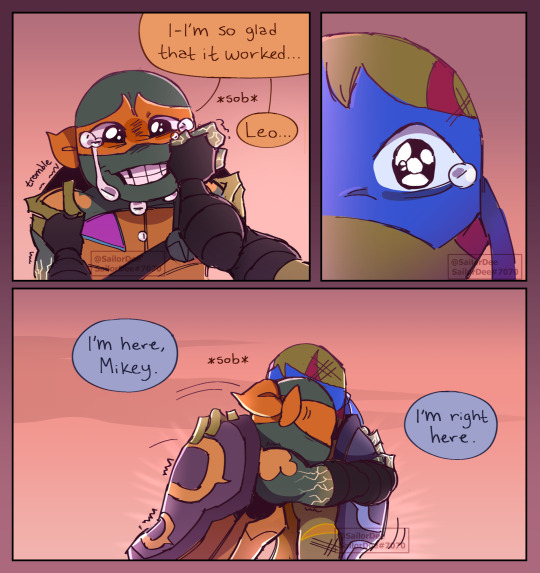
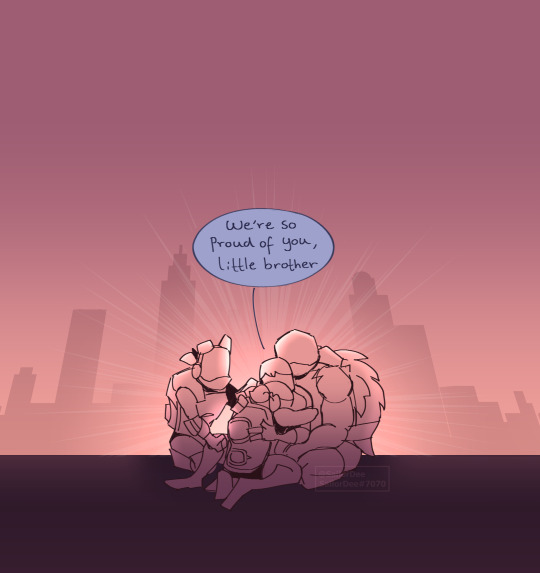
A messy sketch of a scene that I felt was missing from the end of the movie.
Mikey seriously deserves some mad recognition for pulling off that stunt!!
#rottmnt#rise of the tmnt#rottmnt movie#rottmnt comic#rottmnt fanart#rottmnt mikey#rottmnt leo#rottmnt donnie#rottmnt raph#I was honestly really disappointed when they didn't acknowledge this in the movie#oh well#luckily I'm an artist and could bring this to life#spoiler#I FORGOT TO TAG SPOILER BEFORE POSTING SO SORRY!!
11K notes
·
View notes
Text
Crow services
After Danny died he noticed that some animals had become more attached to him while others had moved away. Aggressive or death related animals seemed to react positively to his presence, although friendlier animals such as birds tended to fly away.
Of course, none of this prepared him for the number of crows that landed on his window daily. At first he was scared that they would consider him a corpse and try to eat him but after the third time they brought him a shiny object he assumed they just liked him.
Those crows became very fond of him, they let him pet them, they would perch on his head or shoulders, always present and sometimes even watching over him (A particularly intelligent crow he named Poe would drive his parents away with distractions).
So when he moved to Gotham to complete his studies he prepared for a farewell to his feathered friends; said friends simply ignored him and followed him around the city. Danny assumed he wasn't going to be able to fight them, so he let them be.
This is how the phenomenon called "The Invasion of Crows" began in Gotham, the animals were not aggressive but mostly indifferent, some of them agreed to carry letters as homing pigeons (After Danny asked them for the favor) starting "Crow services"
As long as you had the money or something shiny to pay them the birds would carry messages from one place to another, ironically they would give that payment to Danny, who only sighed and let them pass to his apartment, giving them: some food, shelter and a place to sleep, although he was worried the moment his neighbor would complain about the noise.
At first he let them stay on the streets because they were supposed to be free, but after the sixth time he caught Damian Wayne trying to adopt one he just rolled his eyes and now the little ones were living with him.
So yes, when Jason finally decided to visit his neighbor he didn't expect the red eyed crowd staring at him and judging his actions, one in particular lunged at him and he swore he was about to gouge his eyes out before a voice yelled "Poe, wait! "
Said crow looked at him for a few more seconds before perch on the head of the prettiest boy he had ever seen, who approached to offer him a hand "I'm sorry, they're very overprotective" he muttered worried.
Jason almost fell over laughing when he noticed that this was B's "weird case" about the rise in crows alongside the supposed "new rogue" in town, when all he saw was a college boy with a murder of crows living in his house, maybe creating a new messaging system.
He was going to have so much fun with this, maybe he'd even manage to go on a date with his eyes intact, who knows.
#danny phantom#dp x dc#danny fenton#dc x dp#jason todd#dead on main#jason todd x danny fenton#The crows loves Danny#Damian is trying to adopt one really hard while Danny judges in the background#Crow services started as a joke to deliver Danny's notes to his professor#The professor paid the crows and they just continued#Batman thinks is all an evil plan or a new rouge#It is not#Danny is a retired hero#With a lot of exotic pets apparently#Poe is an intelligent Crow#Jason named some of them too#the one who deliver his messages is called Austen now#He fall in love for the literature reference lmao#poor guy would be disappointed when Danny admits he is not a literature guy#Maybe he will try to convert him#Danny and his crows#Cujo is jealous btw#red hood#batman#detective comics
6K notes
·
View notes
Text
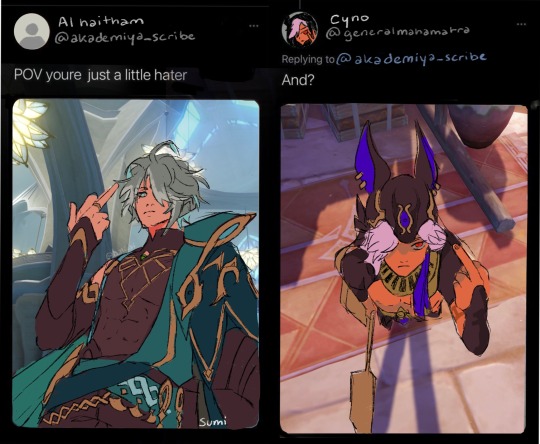
been playing the sumeru archon quest
(ig: @/hali.ai)
#my art#art#digital art#fanart#genshin impact#al haitham#cyno#genshin fanart#they’re so passive aggressive it’s really funny-#procreate#illustration#I’ve been getting back into Genshin kinda#even if the sumeru characters are kinda disappointing I do enjoy a select few#my feelings of sumeru overall are pretty mixed#I want cyno tho come home
19K notes
·
View notes
Text
None Of You Know What Haiku Are
I'm going to preface this by saying that i am not an expert in ANY form of poetry, just an enthusiast. Also, this post is... really long. Too long? Definitely too long. Whoops! I love poetry.
If you ask most English-speaking people (or haiku-bot) what a haiku is, they would probably say that it's a form of poetry that has 3 lines, with 5, and then 7, and then 5 syllables in them. That's certainly what I was taught in school when we did our scant poetry unit, but since... idk elementary school when I learned that, I've learned that that's actually a pretty inaccurate definition of haiku. And I think that inaccurate definition is a big part of why most people (myself included until relatively recently!) think that haiku are kind of... dumb? unimpressive? simple and boring? I mean, if you can just put any words with the right number of syllables into 3 lines, what makes it special?
Well, let me get into why the 5-7-5 understanding of haiku is wrong, and also what makes haiku so special (with examples)!
First of all, Japanese doesn't have syllables! There's a few different names for what phonetic units actually make up the language- In Japanese, they're called "On" (音), which translates to "sound", although English-language linguists often call it a "mora" (μ), which (quoting from Wikipedia here) "is a basic timing unit in the phonology of some spoken languages, equal to or shorter than a syllable." (x) "Oh" is one syllable, and also one mora, whereas "Oi" has one syllable, but two moras. "Ba" has one mora, "Baa" has two moras, etc. In English, we would say that a haiku is made up of three lines, with 5-7-5 syllables in them, 17 syllables total. In Japanese, that would be 17 sounds.
For an example of the difference, the word "haiku", in English, has 2 syllables (hai-ku), but in Japanese, はいく has 3 sounds (ha-i-ku). "Christmas" has 2 syllables, but in Japanese, "クリスマス" (ku-ri-su-ma-su) is 5 sounds! that's a while line on its own! Sometimes the syllables are the same as the sounds ("sushi" is two syllables, and すし is two sounds), but sometimes they're very different.
In addition, words in Japanese are frequently longer than their English equivalents. For example, the word "cuckoo" in Japanese is "ほととぎす" (hototogisu).
Now, I'm sure you're all very impressed at how I can use an English to Japanese dictionary (thank you, my mother is proud), but what does any of this matter? So two languages are different. How does that impact our understanding of haiku?
Well, if you think about the fact that Japanese words are frequently longer than English words, AND that Japanese counts sounds and not syllables, you can see how, "based purely on a 17-syllable counting method, a poet writing in English could easily slip in enough words for two haiku in Japanese” (quote from Grit, Grace, and Gold: Haiku Celebrating the Sports of Summer by Kit Pancoast Nagamura). If you're writing a poem using 17 English syllables, you are writing significantly more content than is in an authentic Japanese haiku.
(Also not all Japanese haiku are 17 sounds at all. It's really more of a guideline.)
Focusing on the 5-7-5 form leads to ignoring other strategies/common conventions of haiku, which personally, I think are more interesting! Two of the big ones are kigo, a season word, and kireji, a cutting word.
Kigo are words/phrases/images associated with a particular season, like snow for winter, or cherry blossoms for spring. In Japan, they actually publish reference books of kigo called saijiki, which is basically like a dictionary or almanac of kigo, describing the meaning, providing a list of related words, and some haiku that use that kigo. Using a a particular kigo both grounds the haiku in a particular time, but also alludes to other haiku that have used the same one.
Kireji is a thing that doesn't easily translate to English, but it's almost like a spoken piece of punctuation, separating the haiku into two parts/images that resonate with and add depth to each other. Some examples of kireji would be "ya", "keri", and "kana." Here's kireji in action in one of the most famous haiku:
古池や 蛙飛び込む 水の音
(Furu ike ya kawazu tobikomu mizu no oto)
(The old pond —
A frog jumps in
The sound of the water.)
You can see the kireji at the end of the first line- 古池や literally translates to "old pond ya". The "ya" doesn't have linguistic meaning, but it denotes the separation between the two focuses of the haiku. First, we are picturing a pond. It's old, mature. The water is still. And then there's a frog! It's spring and he's fresh and new to the world! He jumps into the pond and goes "splash"! Wowie! When I say "cutting word", instead of say, a knife cutting, I like to imagine a film cut. The camera shows the pond, and then it cuts to the frog who jumps in.
English doesn't really have a version of this, at least not one that's spoken, but in English language haiku, people will frequently use a dash or an ellipses to fill the same role.
Format aside, there are also some conventions of the actual content, too. They frequently focus on nature, and are generally use direct language without metaphor. They use concrete images without judgement or analysis, inviting the reader to step into their shoes and imagine how they'd feel in the situation. It's not about describing how you feel, so much as it's about describing what made you feel.
Now, let's put it all together, looking at a haiku written Yosa Buson around 1760 (translated by Harold G. Henderson)
The piercing chill I feel:
my dead wife's comb, in our bedroom,
under my heel
We've got our kigo with "the piercing chill." We read that, and we imagine it's probably winter. It's cold, and the kind of cold wind that cuts through you. There's our kireji- this translation uses a colon to differentiate our two images: the piercing chill, and the poet stepping on his dead wife's comb. There's no descriptions of what the poet is feeling, but you can imagine stepping into his shoes. You can imagine the pain he's experiencing in that moment on your own.
"But tumblr user corvidcall!" I hear you say, "All the examples you've used so far are Japanese haiku that have been translated! Are you implying that it's impossible for a good haiku to be written in English?" NO!!!!! I love English haiku! Here's a good example, which won first place in the 2000 Henderson haiku contest, sponsored by the Haiku Society of America:
meteor shower . . .
a gentle wave
wets our sandals
When you read this one, can you imagine being in the poet's place? Do you feel the surprise as the tide comes in? Do you feel the summer-ness of the moment? Haiku are about describing things with the senses, and how you take in the world around you. In a way, it's like the poet is only setting a scene, which you inhabit and fill with meaning based on your own experiences. You and I are imagining different beaches, different waves, different people that make up the "our" it mentioned.
"Do I HAVE to include all these things when I write haiku? If I include all these things, does that mean my haiku will be good?" I mean, I don't know. What colors make up a good painting? What scenes make up a good play? It's a creative medium, and nobody can really tell you you can't experiment with form. Certainly not me! But I think it's important to know what the conventions of the form are, so you can appreciate good examples of it, and so you can know what you're actually experimenting with. And I mean... I'm not the poetry cops. But if you're not interested in engaging with the actual conventions and limitations of the form, then why are you even using that form?
I'll leave you with one more English language haiku, which is probably my favorite haiku ever. It was written by Tom Bierovic, and won first place at the 2021 Haiku Society of America Haiku Awards
a year at most . . .
we pretend to watch
the hummingbirds
Sources: (x) (x) (x) (x) (x) (x)
Further reading:
Forms in English Haiku by Keiko Imaoka
Haiku: A Whole Lot More Than 5-7-5 by Jack
How to Write a Bad Haiku by KrisL
Haiku Are Not a Joke: A Plea from a Poet Who Has Had It Up to Here by Sandra Simpson
Haiku Checklist by Katherine Raine
#poetry#haiku#writing#literature#anime life#long post#i want to apologize but i had to get something off my chest#and the thing was. i love haiku#and when i see posts on here about haiku. i get so angy.#well ok i really get more disappointed bc nobody is really engaging with the form on its own terms#anyway i hope you enjoy some of my favorite haiku because theyre in there!!!!!#i didnt really get into the history of haiku. and i also did not get into why i got really into it#but i will say that i was really inspired by Jacob Geller's video A Thousand Ways of Seeing a Forest#which is a lot about translation#(which i mean. as an interpreter AND a poetry-enjoyer. really appealed to me lol)
10K notes
·
View notes
Text
Star Wars suddenly making every idiot and their grandma jedi but can’t even make Finn a force user
#Ahsoka spoilers? but not really#I haven’t even watched the episode this is kinda just general disappointment in Star Wars
2K notes
·
View notes